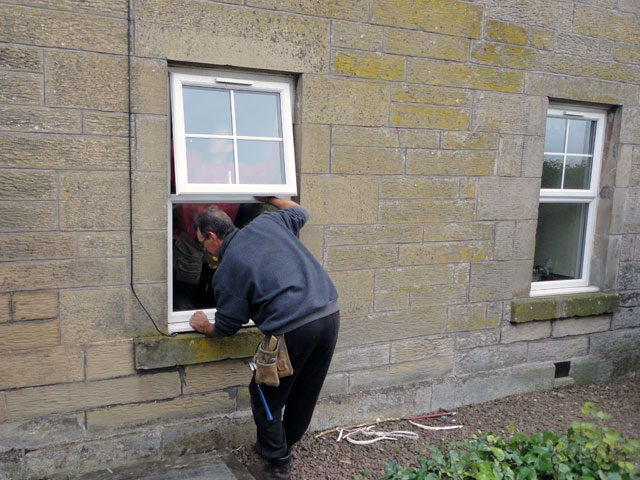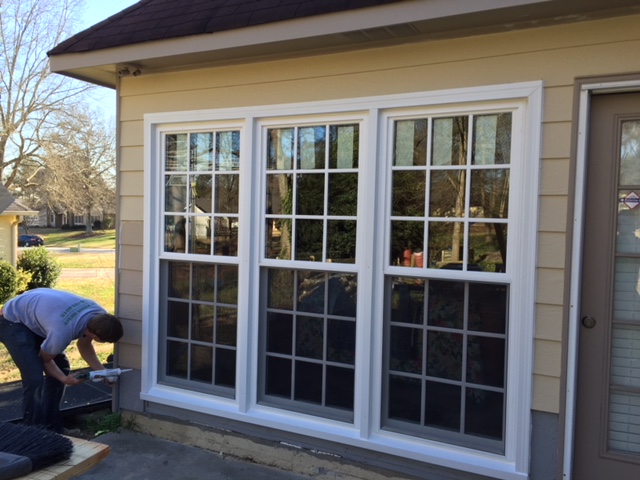Choosing the right window installation contractor is crucial to the success of your home improvement project. Windows plays a vital role in your home’s energy efficiency, security, and aesthetics, so hiring a skilled contractor is essential. This blog post will guide you through the key factors to consider when selecting a window installation contractor, ensuring you make an informed decision.
1. Research and Gather Recommendations
The first step in finding the best window installation contractor is conducting thorough research. Start by asking friends, family, and neighbors for recommendations. Personal referrals are often the most reliable source of information because they come from people you trust who have firsthand experience with the contractor.
Additionally, use online resources to expand your list of potential contractors. Websites like Yelp, Google Reviews, and Angie’s List provide customer reviews and ratings that can give you a sense of a contractor’s reputation. Pay close attention to patterns in the feedback—if multiple people mention the same strengths or weaknesses, it’s likely indicative of the contractor’s overall performance.
2. Check Credentials and Licensing
Before hiring a window installation contractor, verify that they have the necessary credentials and licenses to operate in your area. Proper licensing ensures that the contractor has met the local building codes and regulations, which is essential for a safe and compliant installation.
In addition to licensing, ask if the contractor has any industry certifications. Certifications from organizations like the National Fenestration Rating Council (NFRC) or the American Architectural Manufacturers Association (AAMA) indicate that the contractor has received specialized training and adheres to high industry standards.
Insurance is another critical factor. Ensure that the contractor has both liability insurance and workers’ compensation coverage. This protects you from financial responsibility in case of accidents or damage during the installation process.
3. Evaluate Experience and Expertise
Experience matters when it comes to window installation. A contractor with several years of experience is more likely to have encountered and overcome various challenges, making them better equipped to handle your project.
Ask the contractor about their experience with the specific type of windows you plan to install. Some contractors may specialize in certain types of windows, such as vinyl, wood, or energy-efficient models. Choosing a contractor with expertise in your preferred window type can lead to a smoother installation and better results.
Request a portfolio of previous projects to get a sense of the contractor’s work quality. A reputable contractor should have no problem providing examples of completed projects, along with references from satisfied customers. Contact these references to inquire about their experience working with the contractor, focusing on aspects like punctuality, communication, and workmanship.
4. Obtain Detailed Estimates
When you’ve narrowed down your list of potential contractors, ask for detailed written estimates from each one. A comprehensive estimate should include the cost of materials, labor, and any additional fees, such as disposal of old windows or permits.
Be cautious of estimates that seem unusually low compared to others. A low bid could indicate that the contractor is cutting corners or using subpar materials. On the other hand, a significantly higher estimate doesn’t necessarily guarantee better quality. It’s important to strike a balance between cost and value.
When reviewing estimates, also inquire about the payment schedule. Reputable contractors typically don’t require full payment upfront. Instead, they may ask for a deposit, with the remaining balance due upon completion of the project. This arrangement protects you and ensures the contractor is motivated to complete the job to your satisfaction.
5. Understand the Warranty and After-Sales Service
A good window installation contractor should offer a warranty on both the windows themselves and the installation work. The manufacturer’s warranty usually covers defects in the windows, while the contractor’s warranty covers the installation.
Make sure you understand the terms of both warranties, including their duration and what they cover. For example, some warranties may only cover labor for a certain period, while others offer more comprehensive coverage. It’s important to have this information in writing so that you know what to expect if issues arise after the installation.
Additionally, ask about the contractor’s after-sales service. Will they be available to address any problems or concerns that may arise after the installation is complete? A contractor who is committed to customer satisfaction will be responsive and willing to resolve any issues promptly.
6. Assess Communication and Professionalism
Effective communication is key to a successful window installation project. From your initial contact with the contractor, pay attention to how they communicate. Are they responsive to your inquiries? Do they provide clear and detailed answers to your questions? Good communication helps ensure that both you and the contractor are on the same page throughout the project.
Professionalism is another important factor. A professional contractor should be punctual, respectful, and organized. When they visit your home to provide an estimate, they should take the time to assess your needs and discuss the best options for your windows. Their behavior during this initial meeting can be a good indicator of how they will conduct themselves during the project.
Be wary of contractors who pressure you into making a quick decision or who seem more interested in closing the sale than in understanding your needs. A trustworthy contractor will give you the time and space to make an informed decision without applying undue pressure.

7. Review the Contract Carefully
Once you’ve chosen a contractor, the next step is to review the contract carefully before signing. The contract should clearly outline the scope of work, materials to be used, project timeline, payment terms, and warranty details.
Make sure that all verbal agreements made during the estimation process are included in the written contract. This includes any promises about the quality of materials, specific installation techniques, or additional services. A well-drafted contract helps prevent misunderstandings and provides legal protection in case of disputes.
If you have any concerns or questions about the contract, don’t hesitate to ask for clarification. It’s better to address any issues upfront rather than encountering surprises later in the project.
8. Trust Your Instincts
Finally, trust your instincts when choosing a window replacement services. If something feels off or if you have reservations about a particular contractor, it’s okay to walk away and explore other options. Your comfort level with the contractor is just as important as their qualifications and experience.
Remember, a window installation is a significant investment in your home. Taking the time to choose the right contractor will ensure that the job is done correctly and that your new windows enhance your home’s value, energy efficiency, and curb appeal.
Conclusion
Selecting the best window installation contractor involves careful consideration of various factors, from credentials and experience to communication and professionalism. By doing your research, obtaining detailed estimates, and reviewing the contract thoroughly, you can make an informed decision that ensures your window installation project is a success. Trusting your instincts and choosing a contractor who prioritizes your satisfaction will lead to a positive experience and high-quality results for your home.





